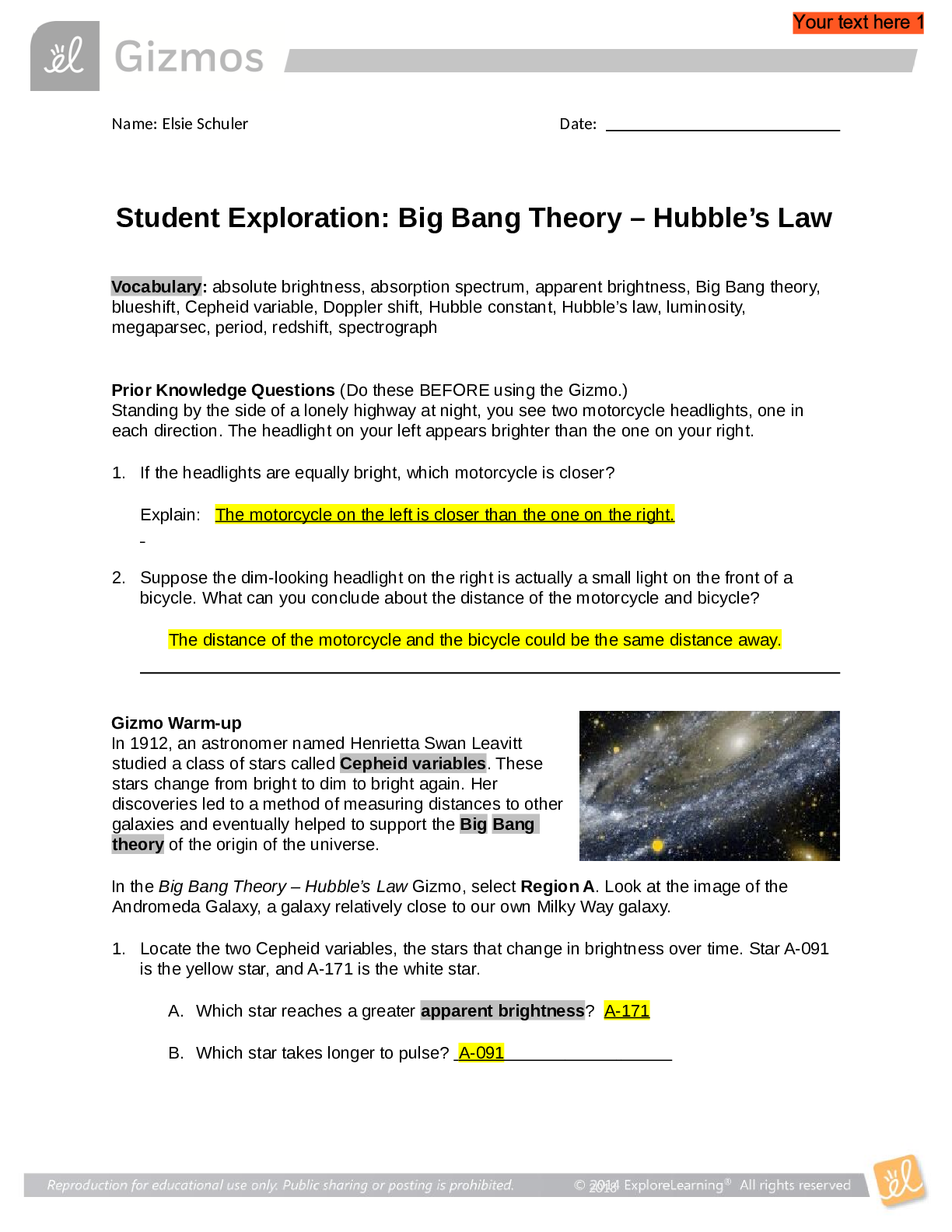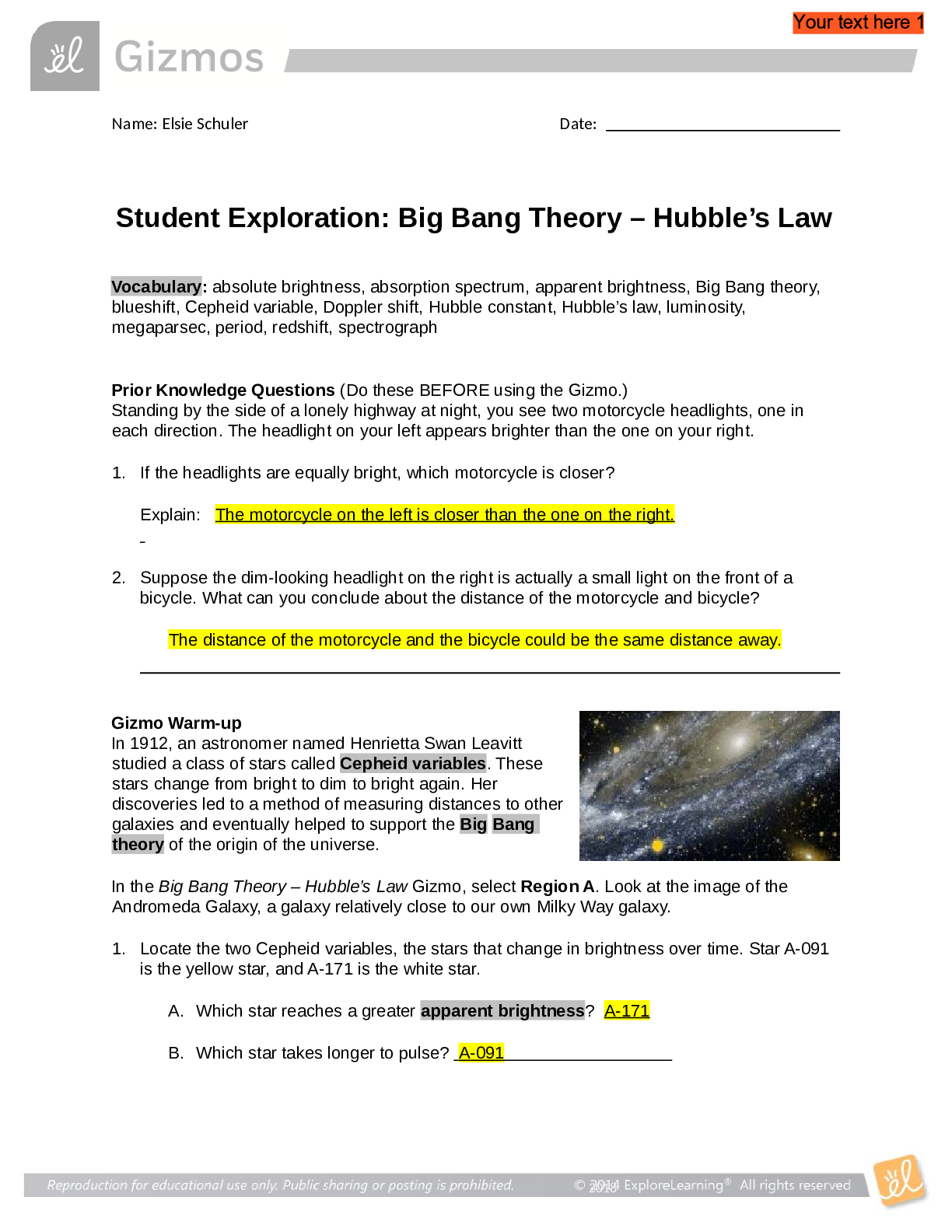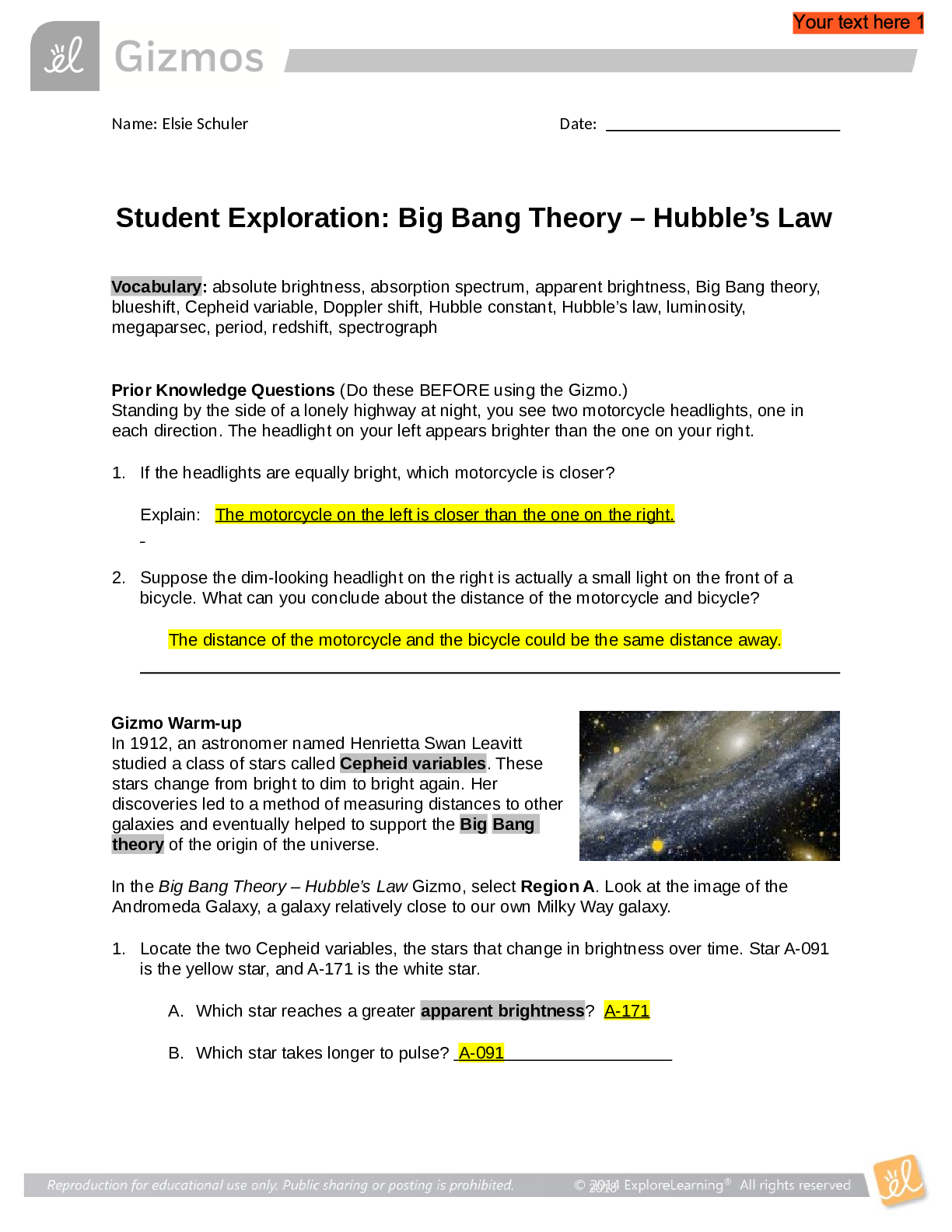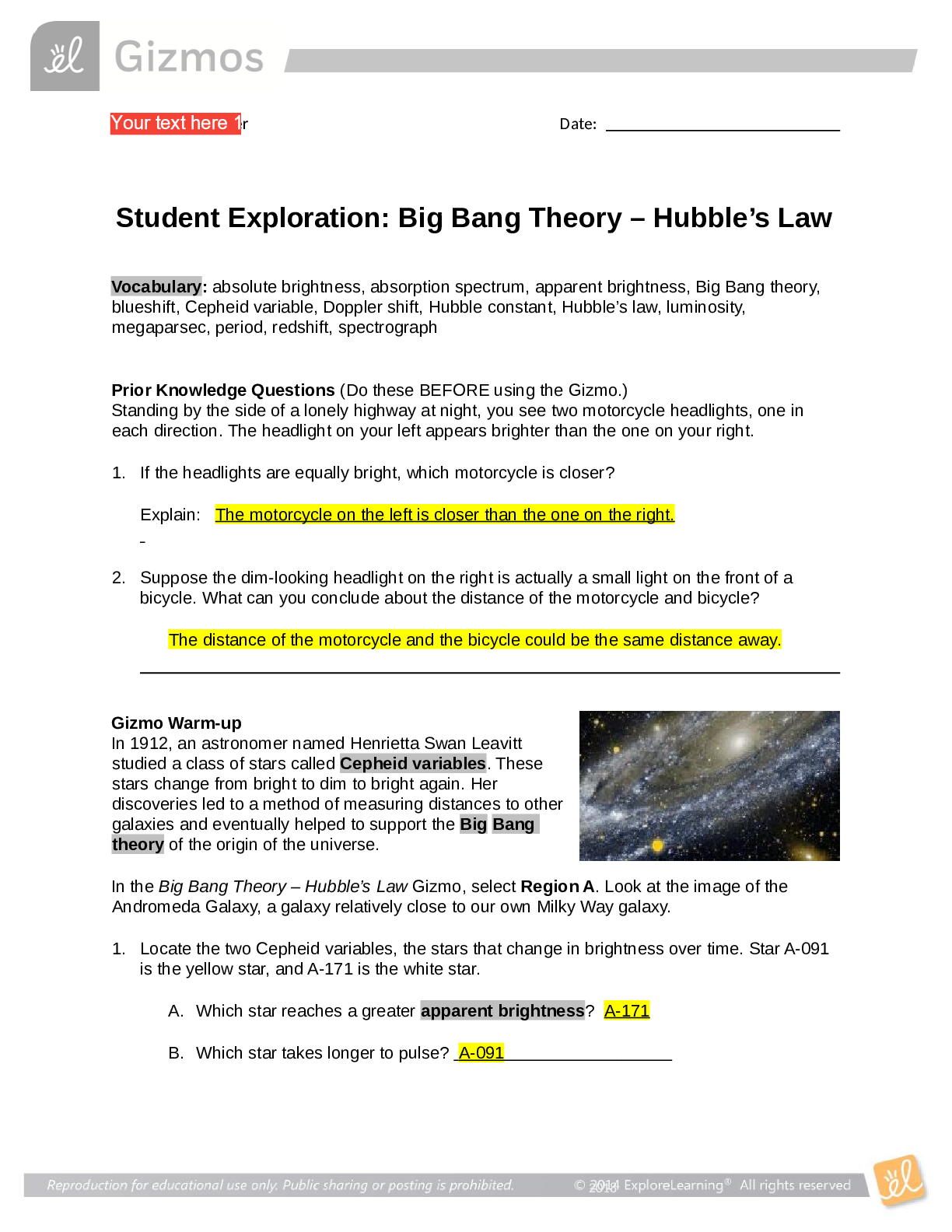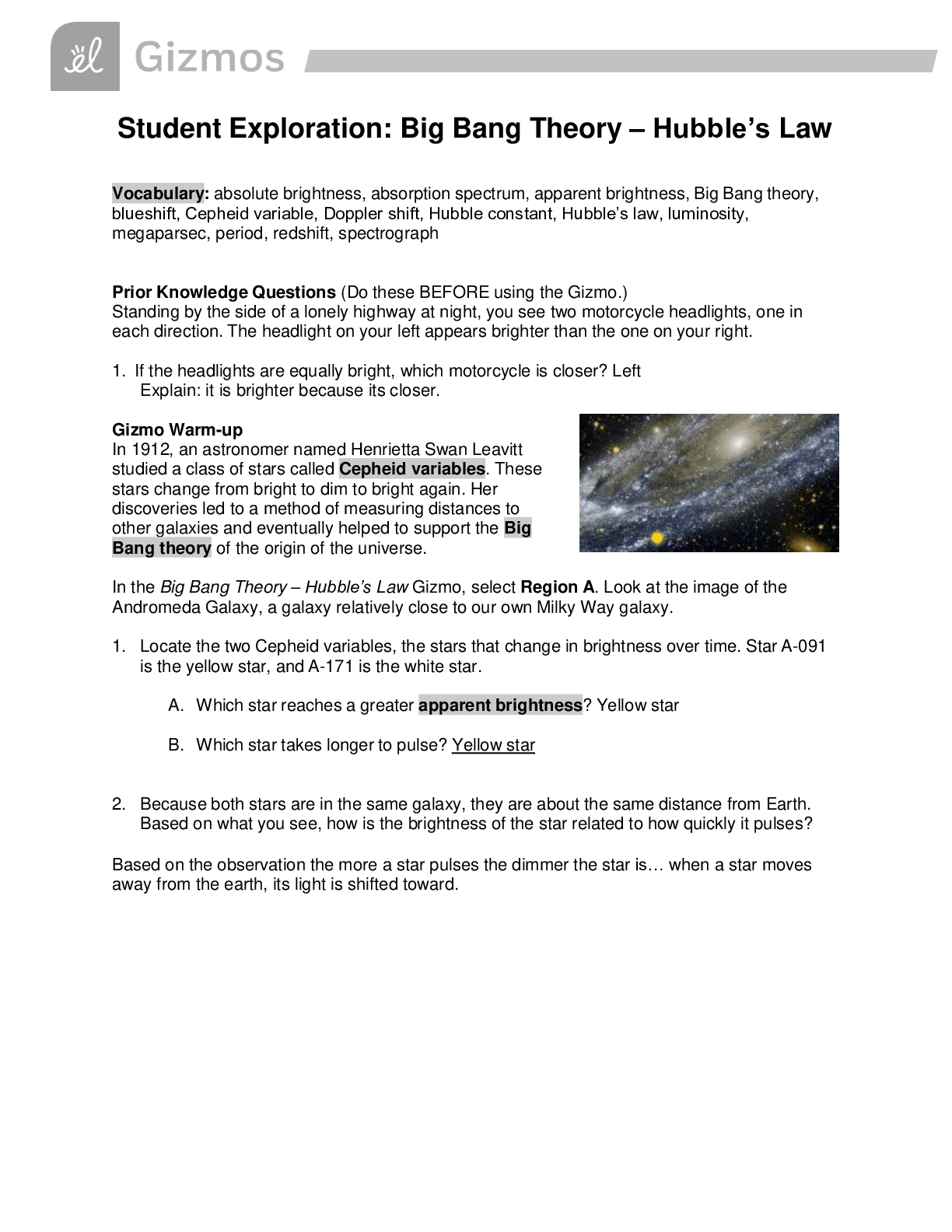SCIENCE 101 > GIZMOS > GIZMO Coral Reefs 2-Biotic Factors -ALL ANSWERS CORRECT -GRADED A+ (All)
GIZMO Coral Reefs 2-Biotic Factors -ALL ANSWERS CORRECT -GRADED A+
Document Content and Description Below
Student Exploration: Coral Reefs 2 – Biotic Factors [This lesson was designed as a follow-up to the Coral Reefs 1 – Abiotic Factors lesson. Students should complete that activity before trying t... his one.] Vocabulary (refer to vocab file located on the Gizmo site for definitions): biotic factor, black band disease, invasive species, white band disease Prior Knowledge Questions (Do these BEFORE using the Gizmo.) In 1992, Hurricane Andrew left a wake of destruction through Florida. One victim of the storm was a reptile-breeding facility. Over 900 Burmese pythons were set free, and today thousands of pythons live in Florida. These pythons are an invasive species, or a harmful species not native to the region. 1. What impacts do you think the Burmese pythons might have on local ecosystems? They’ll disrupt the normal food chain 2. In general, why might ecologists be concerned when new invasive species arrive in an ecosystem? It could cause another species to die off in the area Gizmo Warm-up: Like terrestrial environments, coral reefs can be damaged by invasive species. Reefs are also impacted by disease-causing bacteria, humans, and other biotic factors, or living parts of the ecosystem. In the Coral Reefs 2 – Biotic Factors lesson, you will explore how these factors affect coral reefs. 1. On the CONDITIONS tab, select Fishing. Set Net fishing to 50%. Click Advance year 10 times. What changes do you notice on the Coral reef tab? There is almost no fish life in the area 2. On the DATA tab, select every organism. What happens to the reef populations? The long-spined sea urchin, algae, and sponge populations rise and everything else decreases Activity A: Fishing regulation Get the Gizmo ready: • Click Return to original settings and Restart. • On the CONDITIONS tab, check that Fishing is selected. Introduction: Fishing is a major part of many Caribbean economies. The yellowtail snapper and Nassau grouper are important food fishes. However, a lack of adequate regulation has led to overfishing in many areas and consequent damage to reefs. The goals of this activity are to observe the effects of overfishing and determine how much fishing the reef can withstand. Question: What are the effects of fishing on the reef ecosystem? 1. Describe: On the CORAL REEF tab, click on the stoplight parrotfish, queen angelfish, yellowtail snapper, and Nassau grouper. Describe what each of these fishes eat. Stoplight parrotfish: Algae Yellowtail snapper: Young fish, shrimp, crabs, worms [Show More]
Last updated: 1 year ago
Preview 1 out of 8 pages
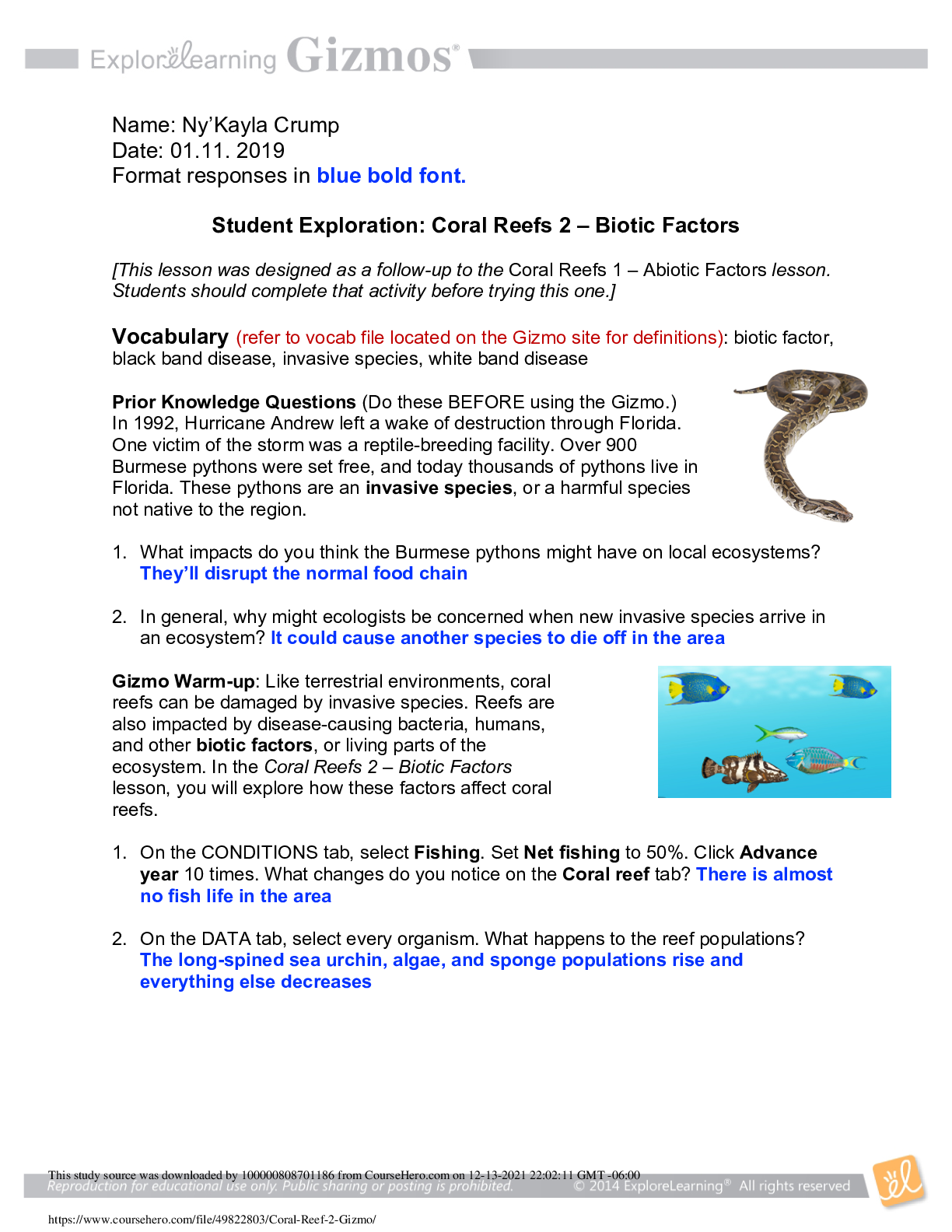
Reviews( 0 )
Document information
Connected school, study & course
About the document
Uploaded On
May 28, 2021
Number of pages
8
Written in
Additional information
This document has been written for:
Uploaded
May 28, 2021
Downloads
3
Views
622

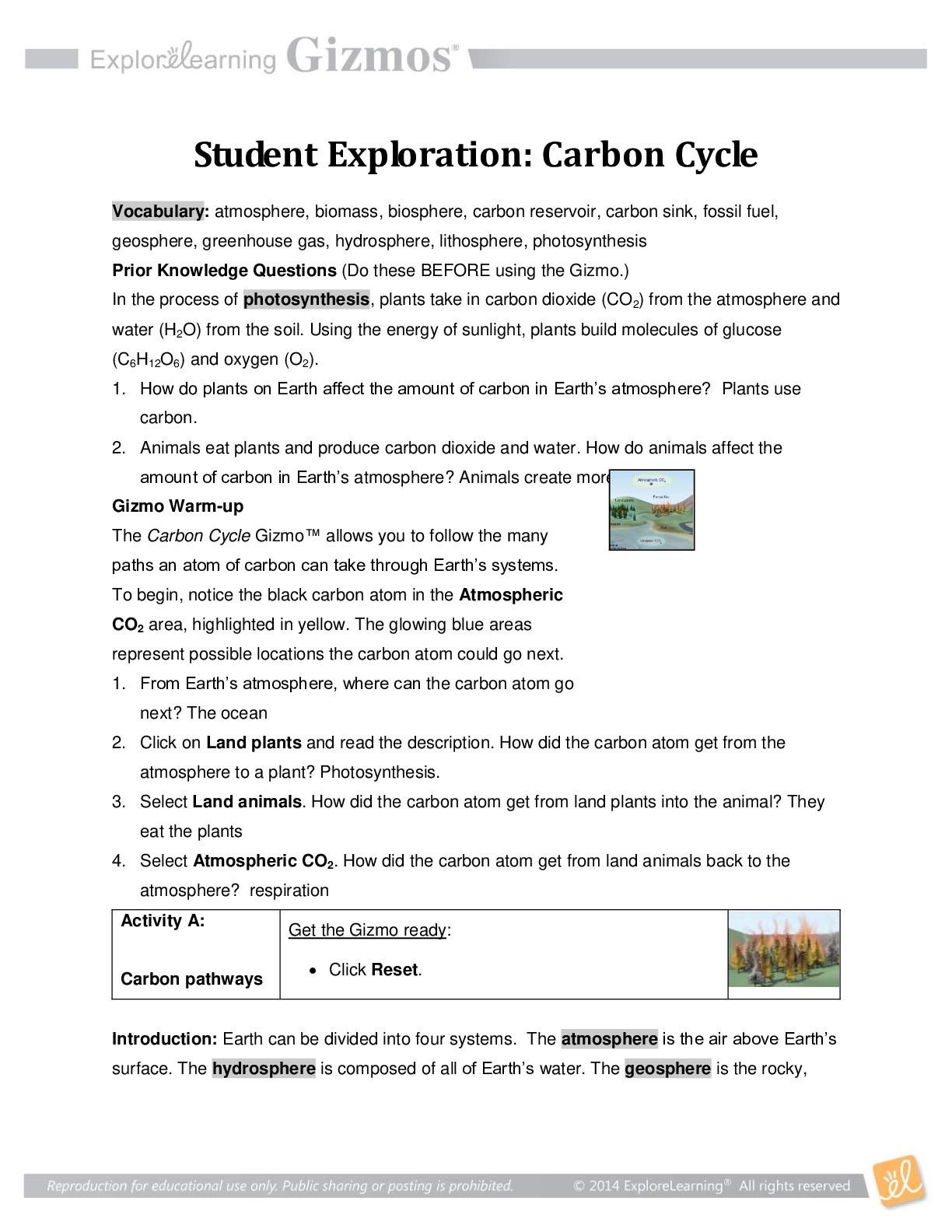

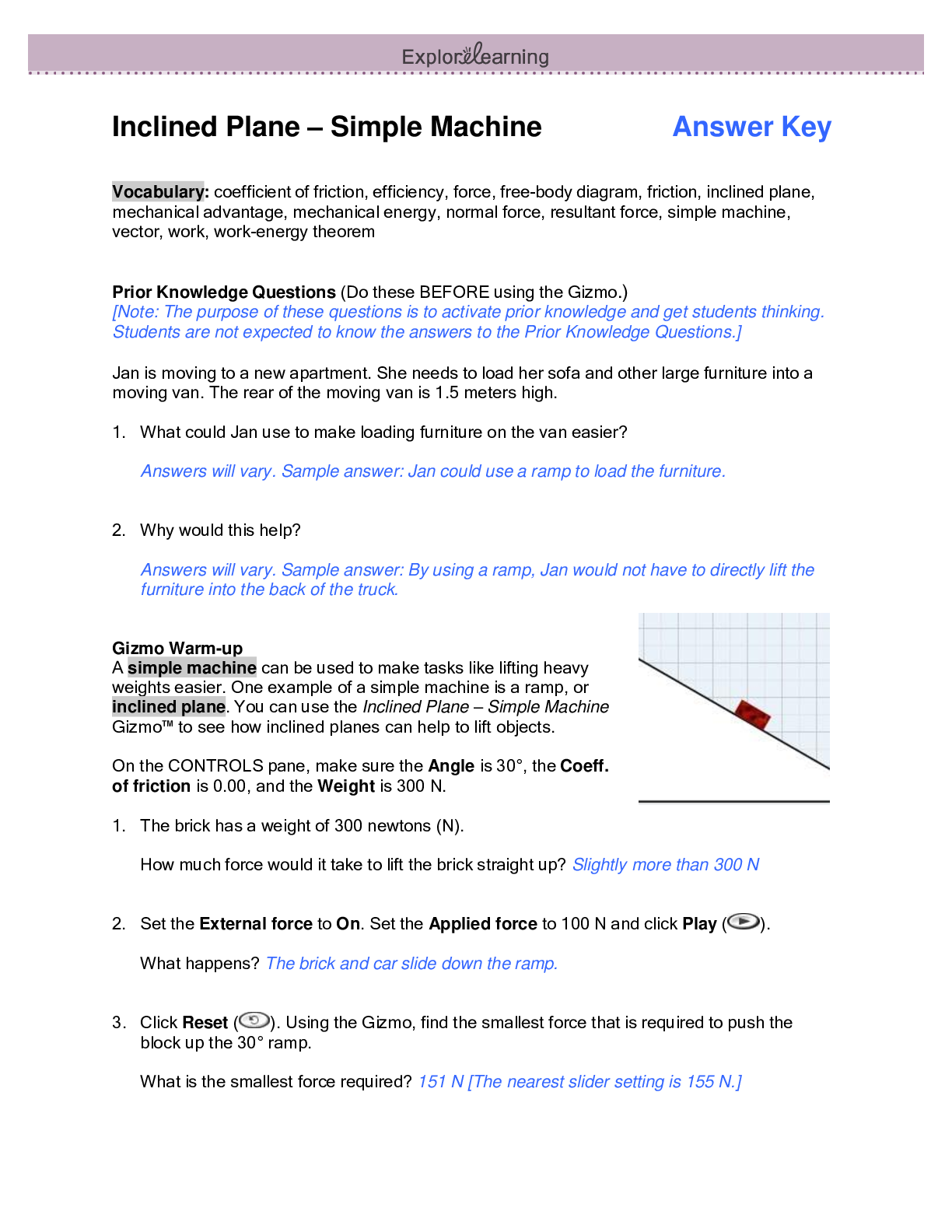
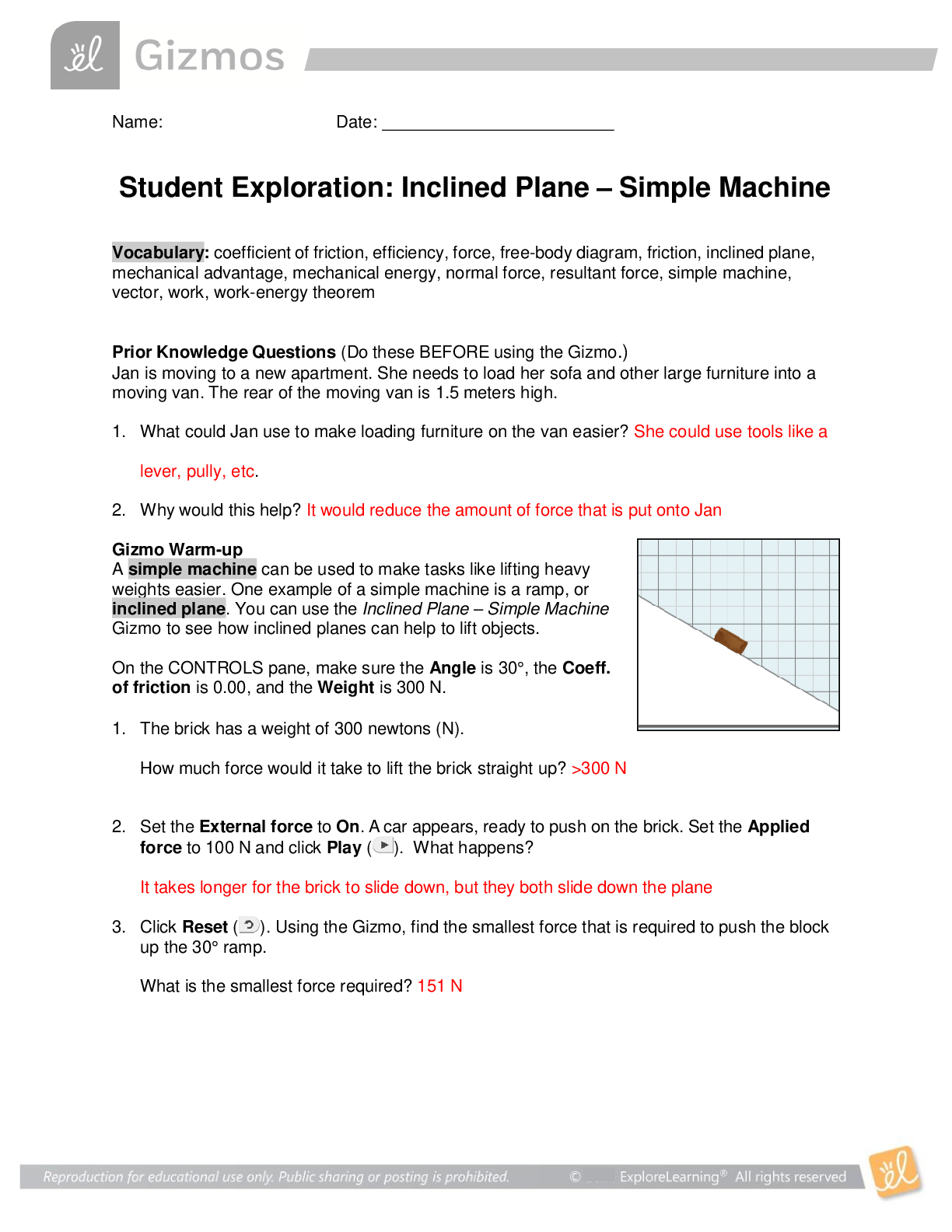
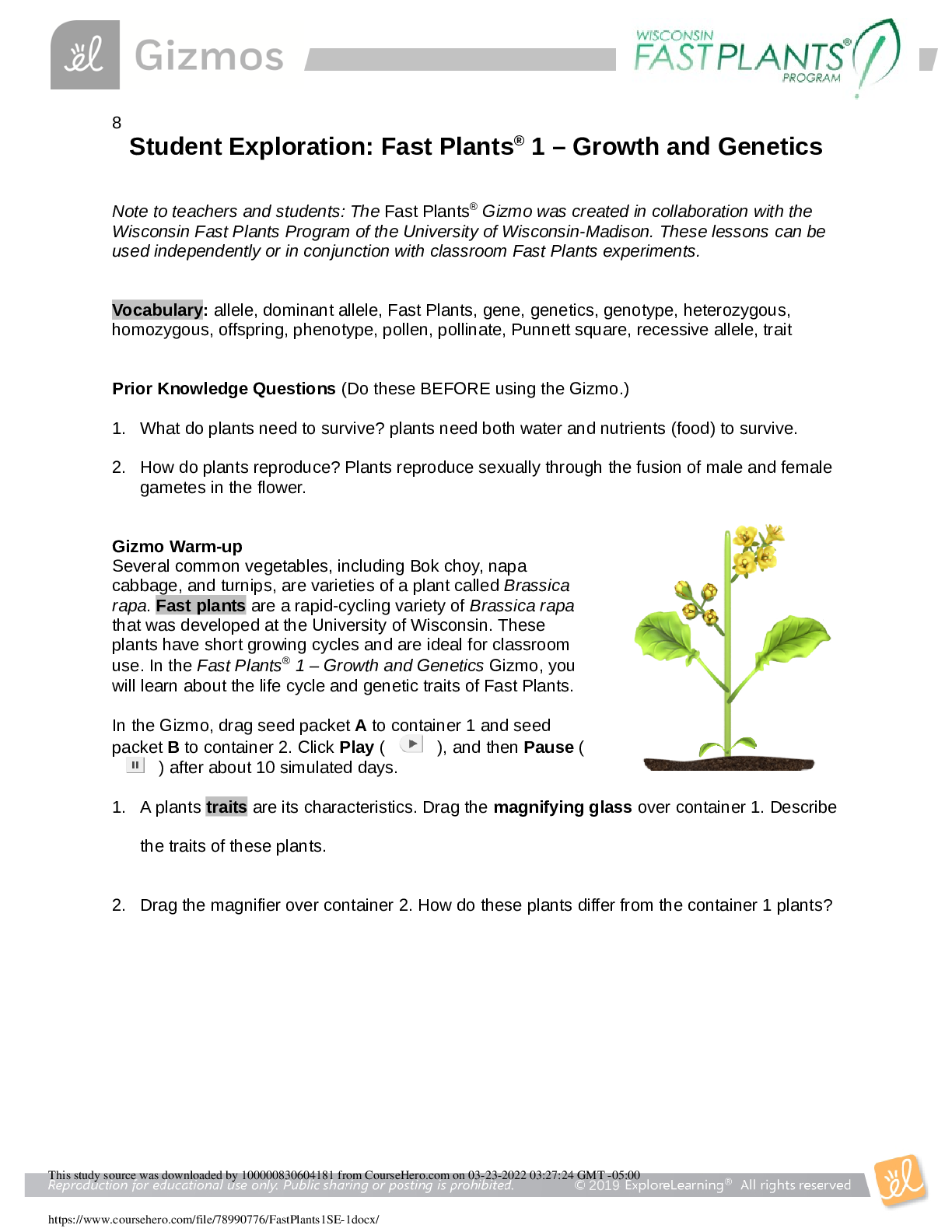
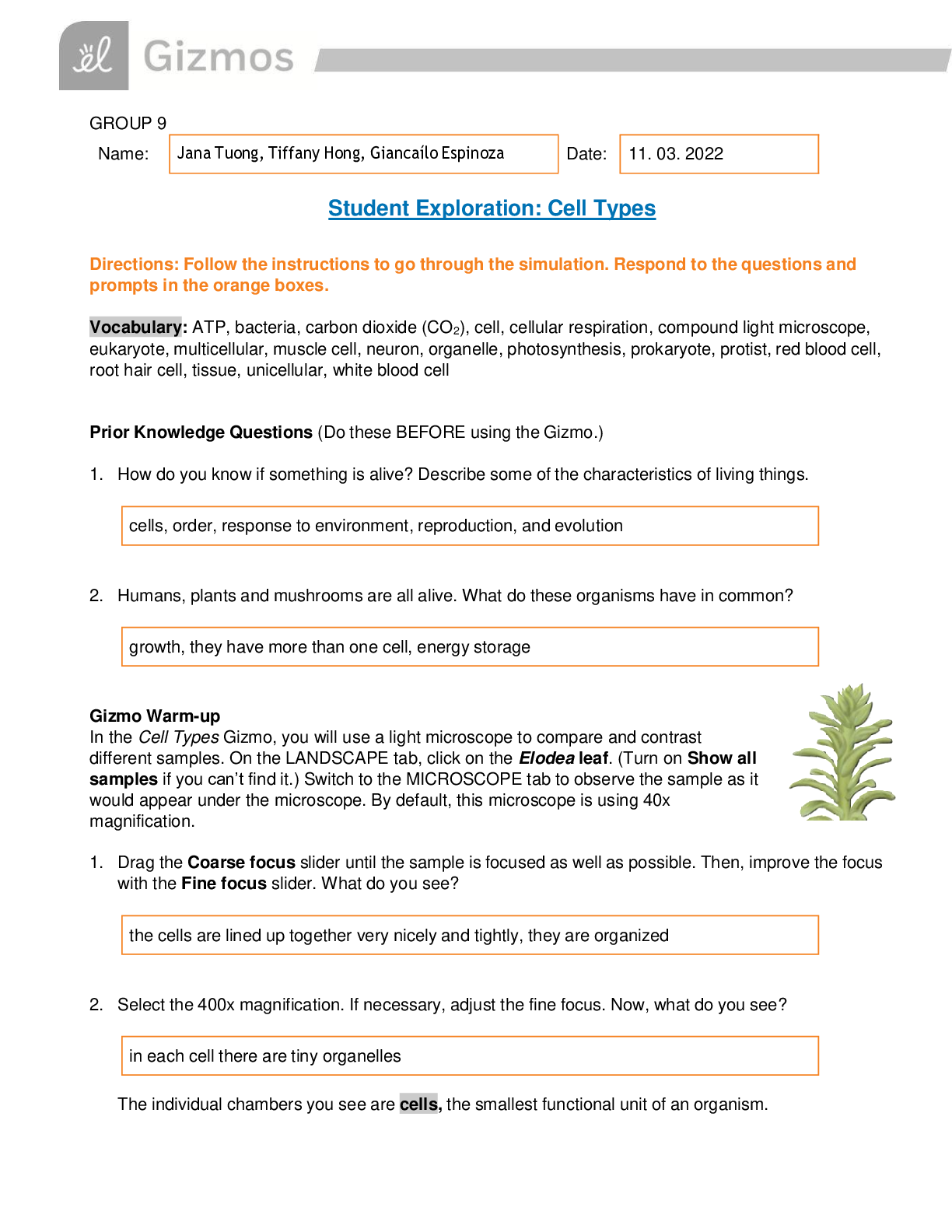
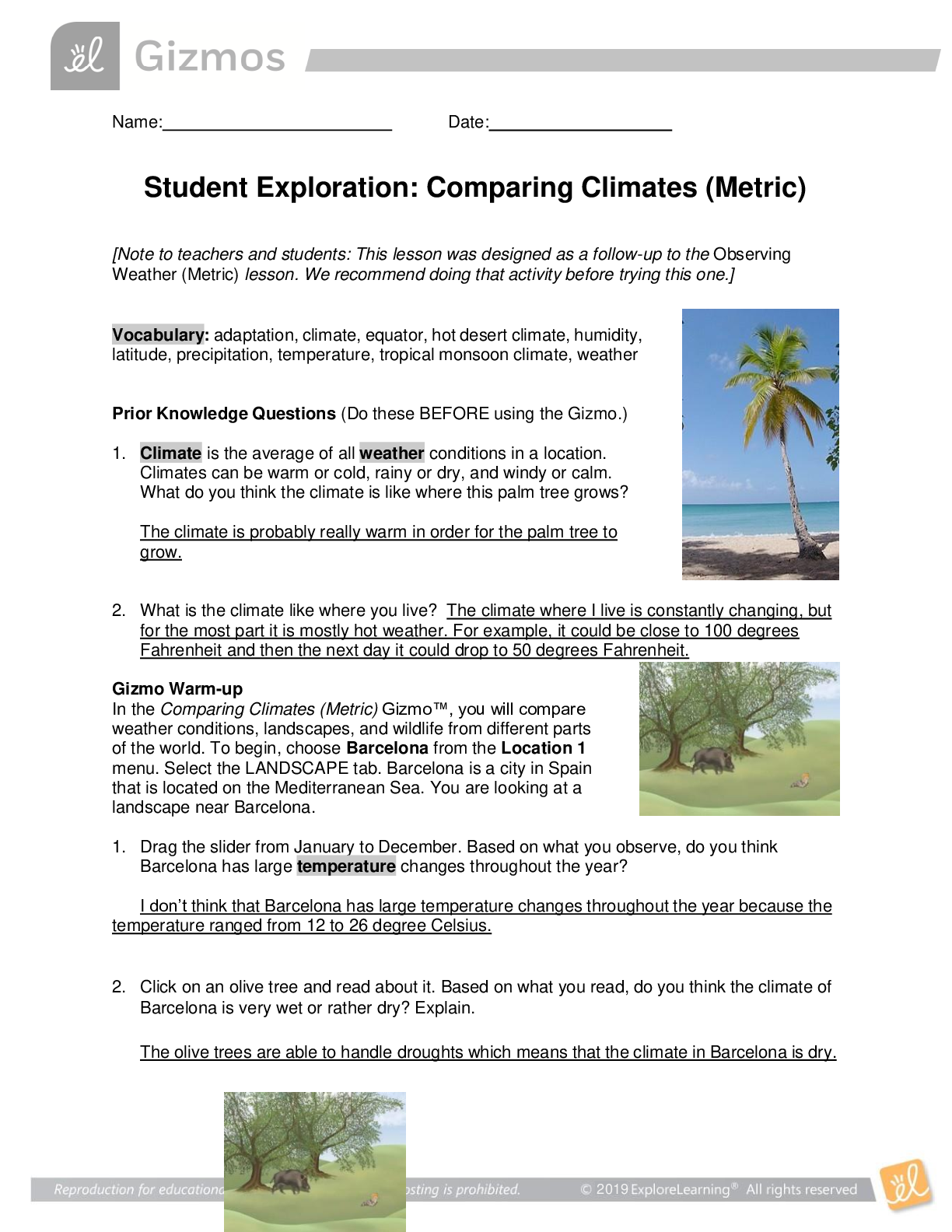
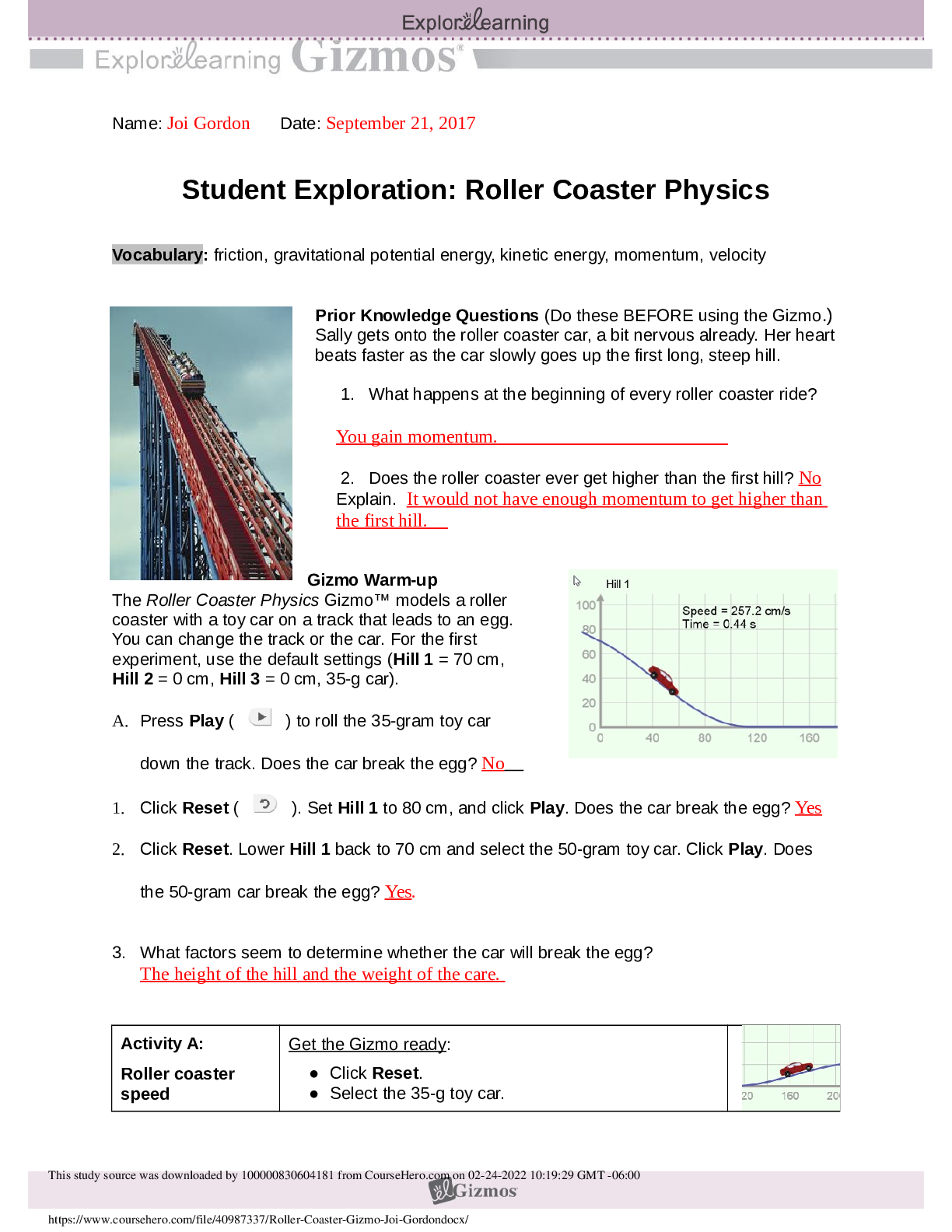

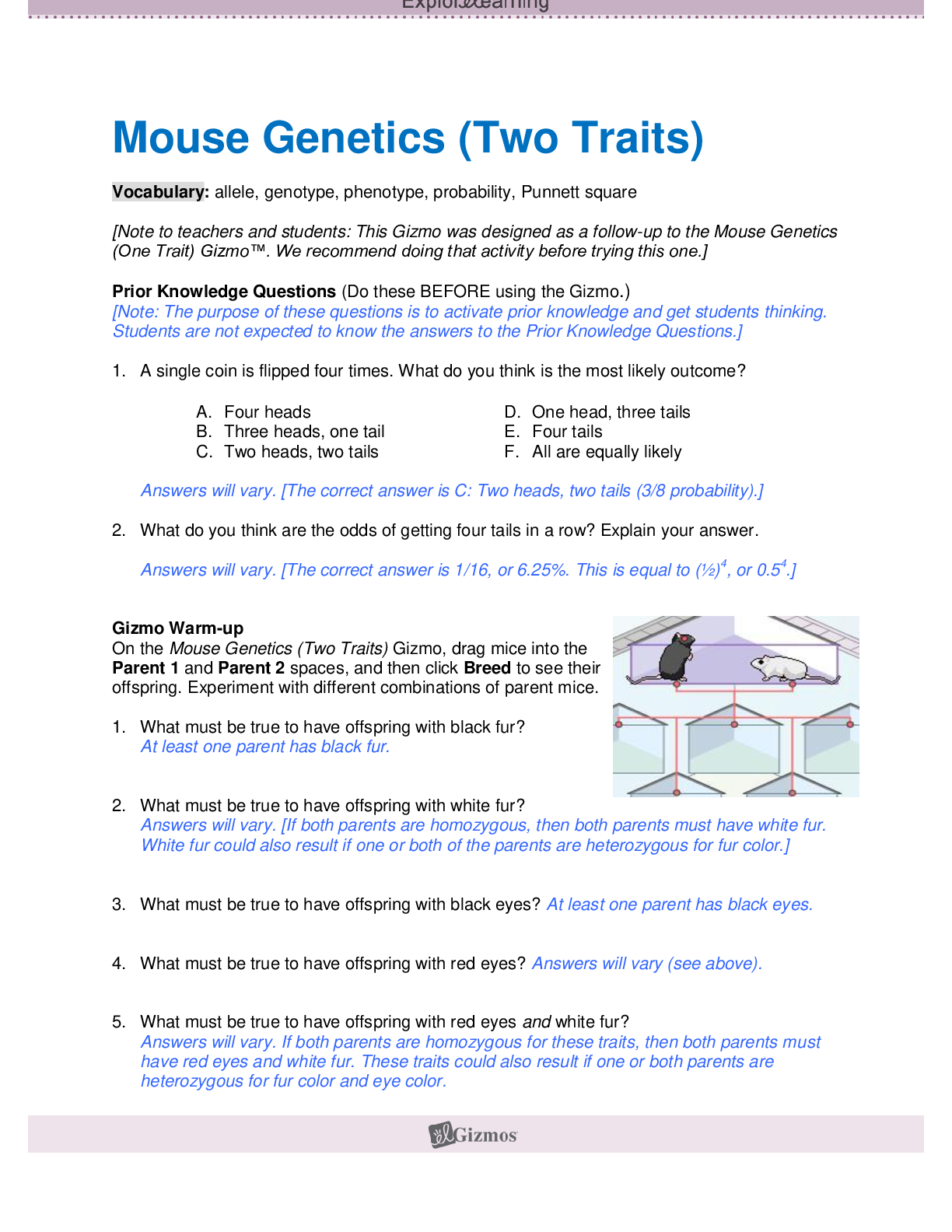

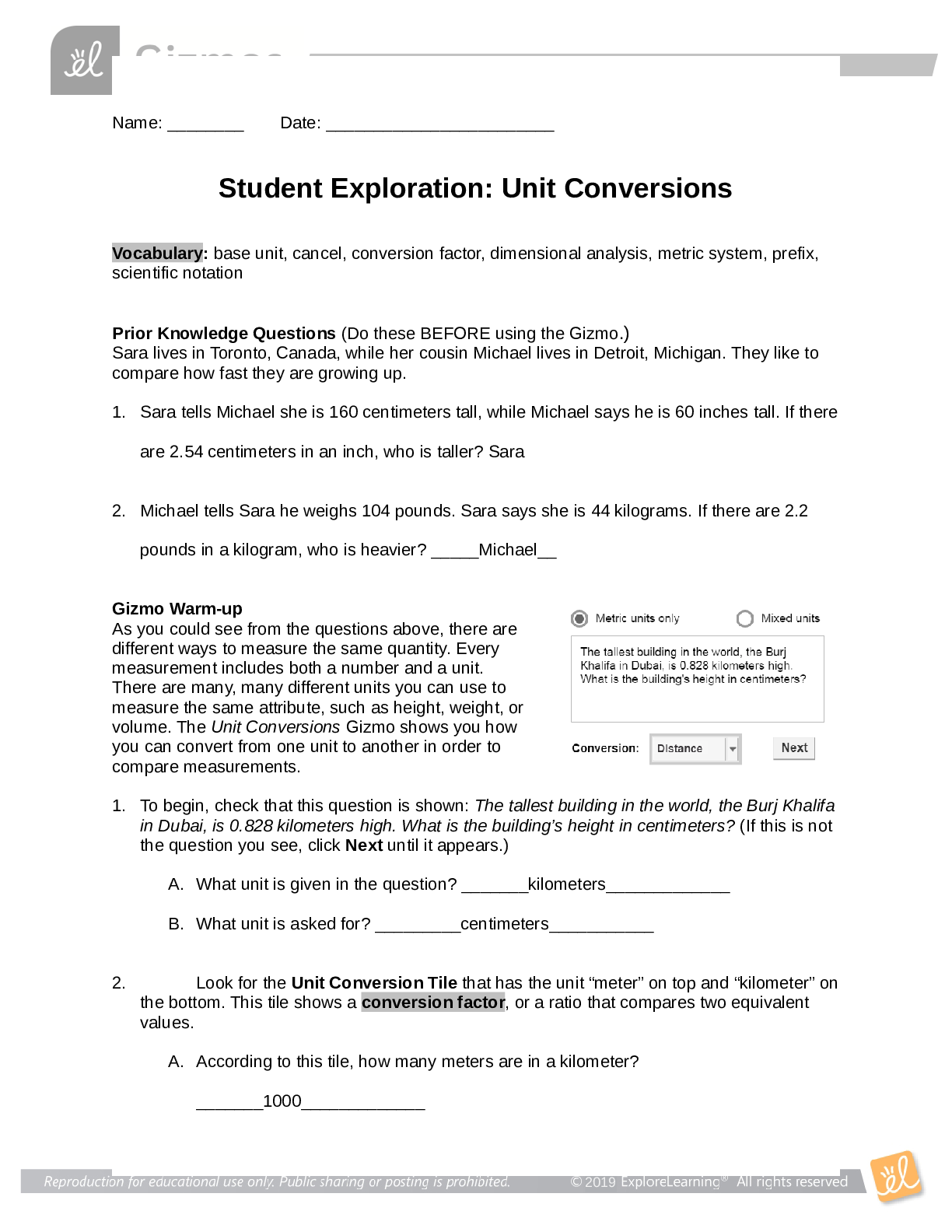

.png)
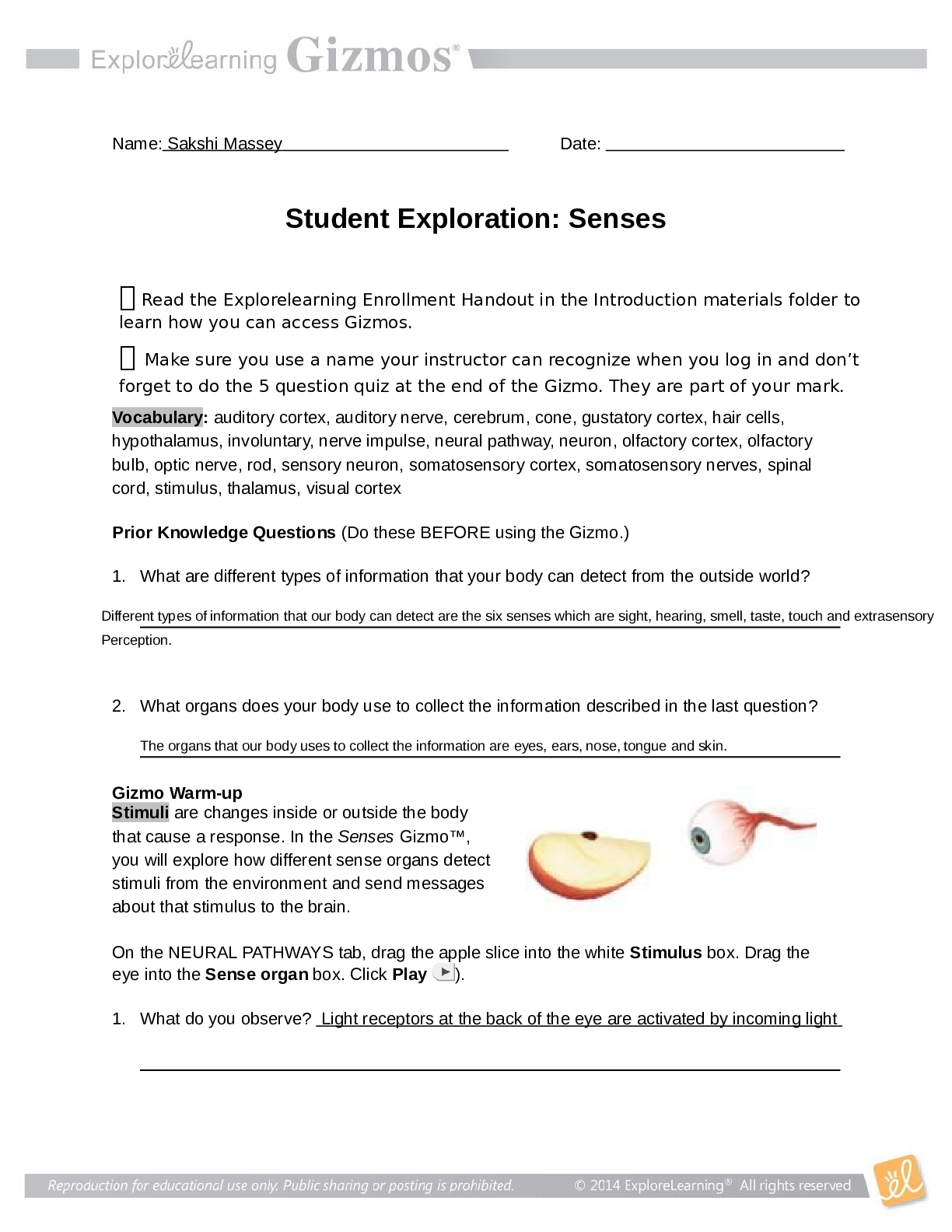
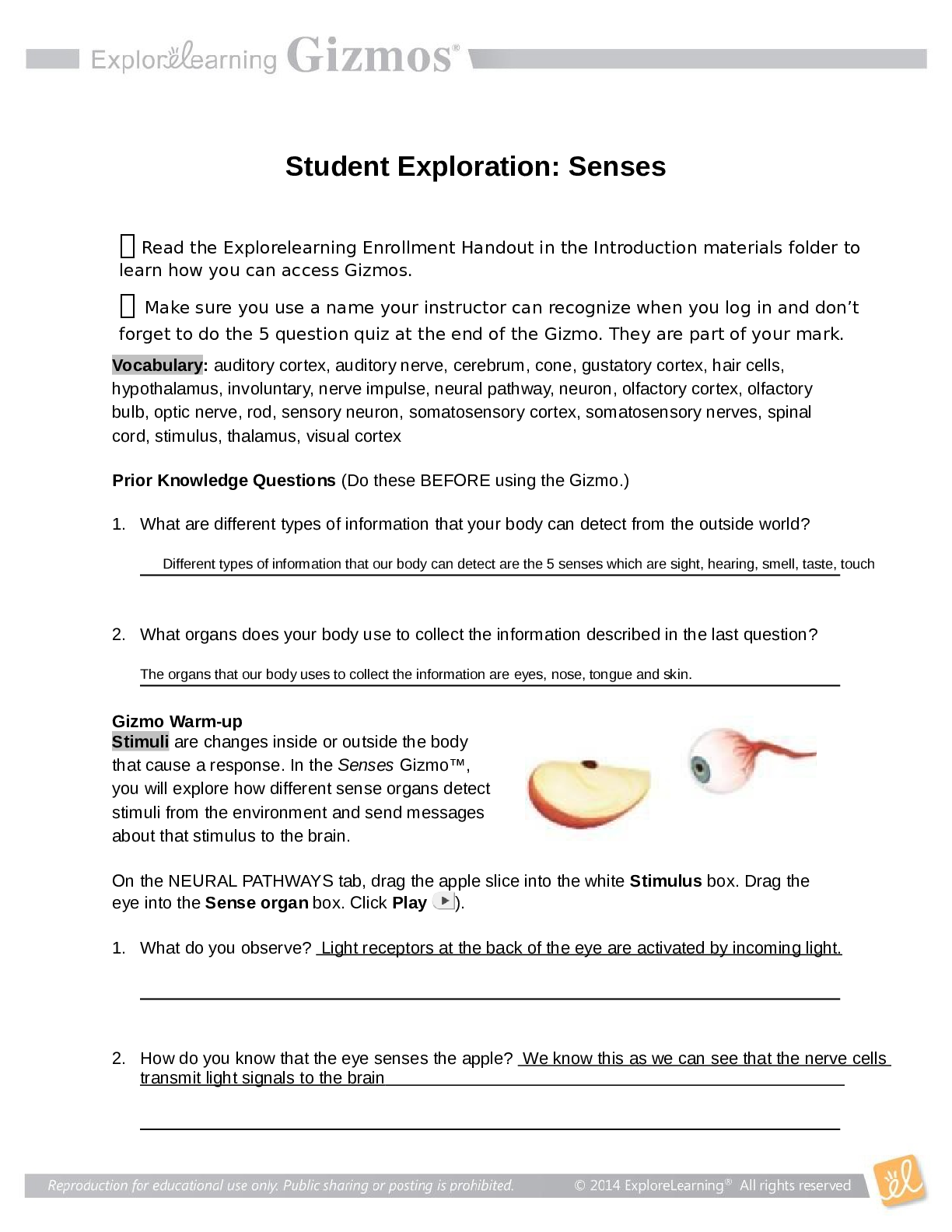
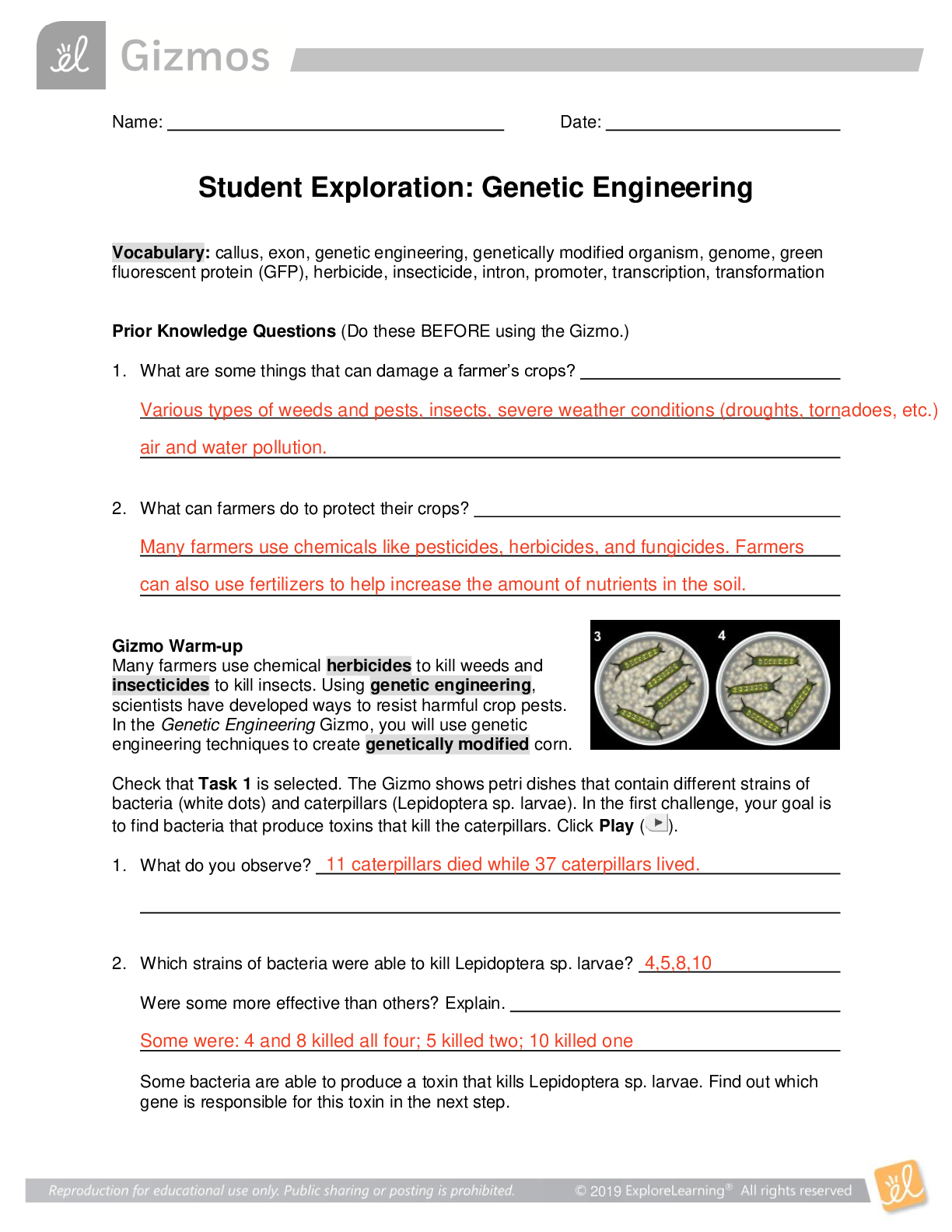
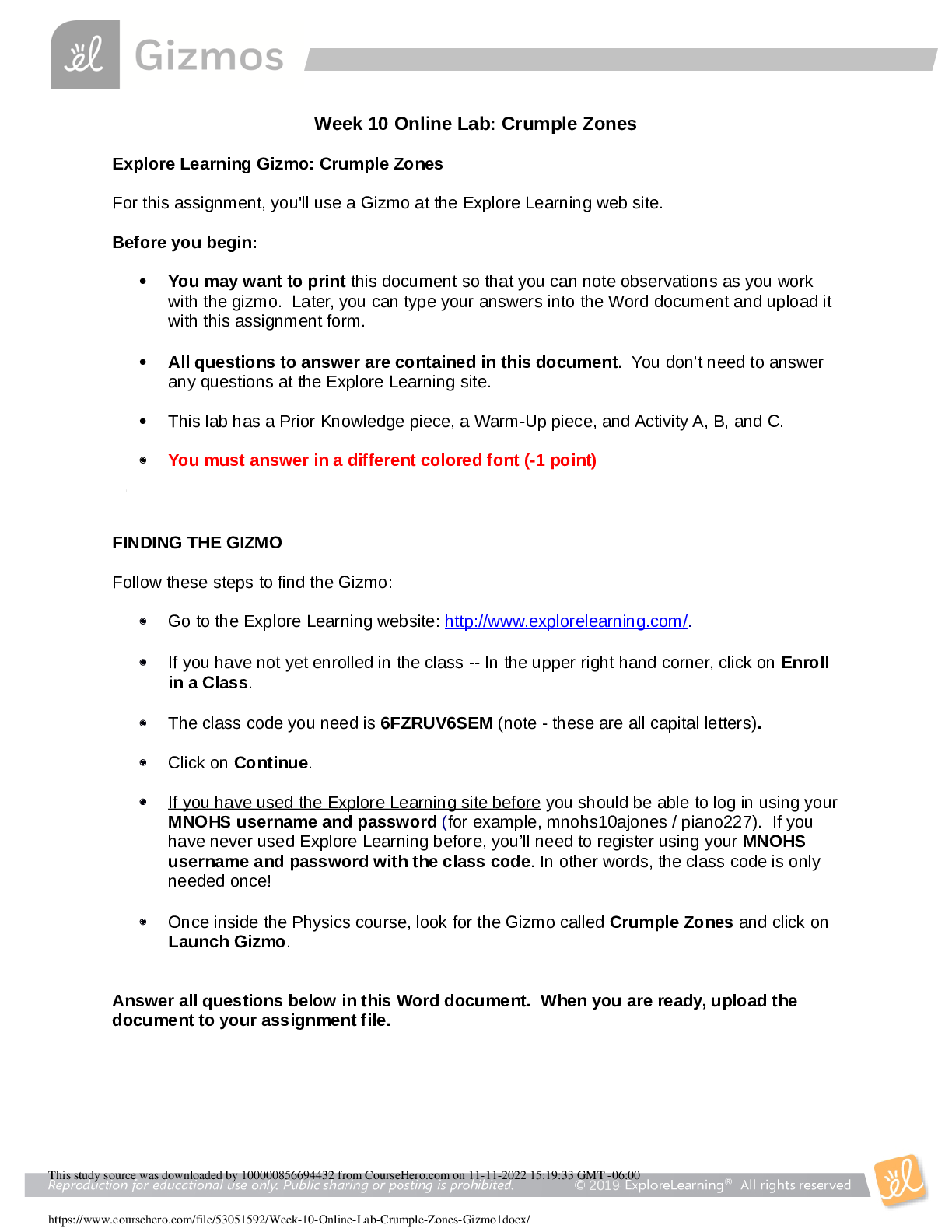
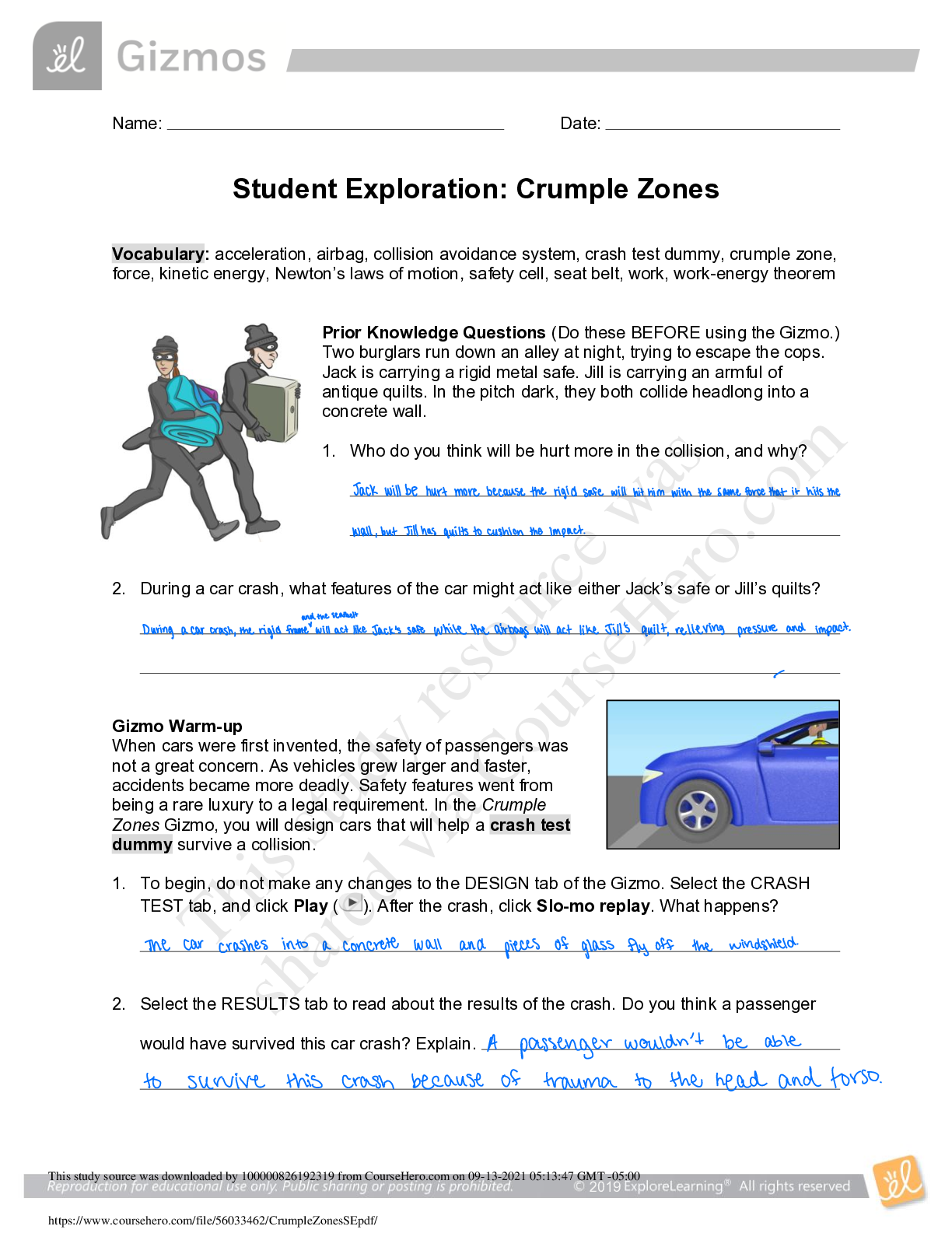
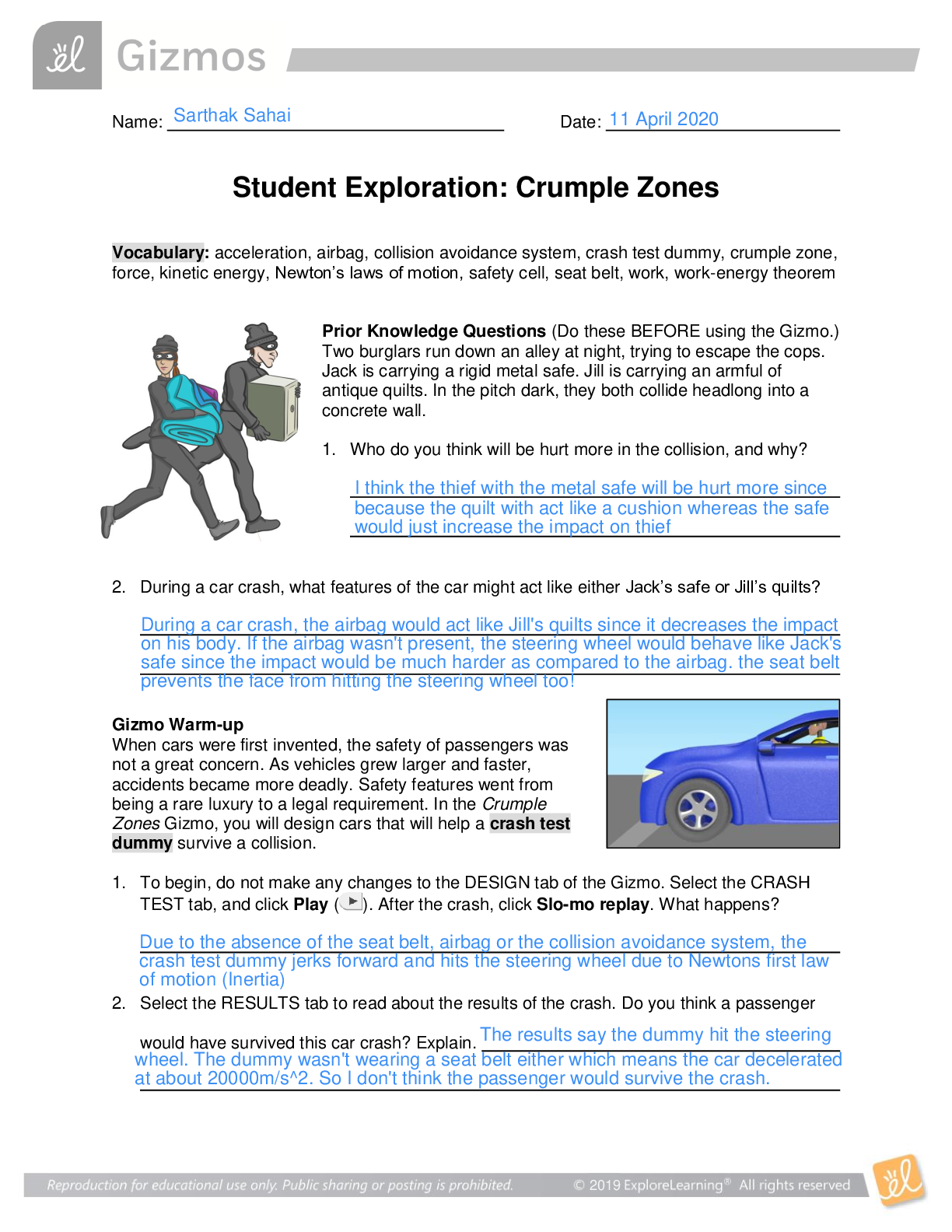
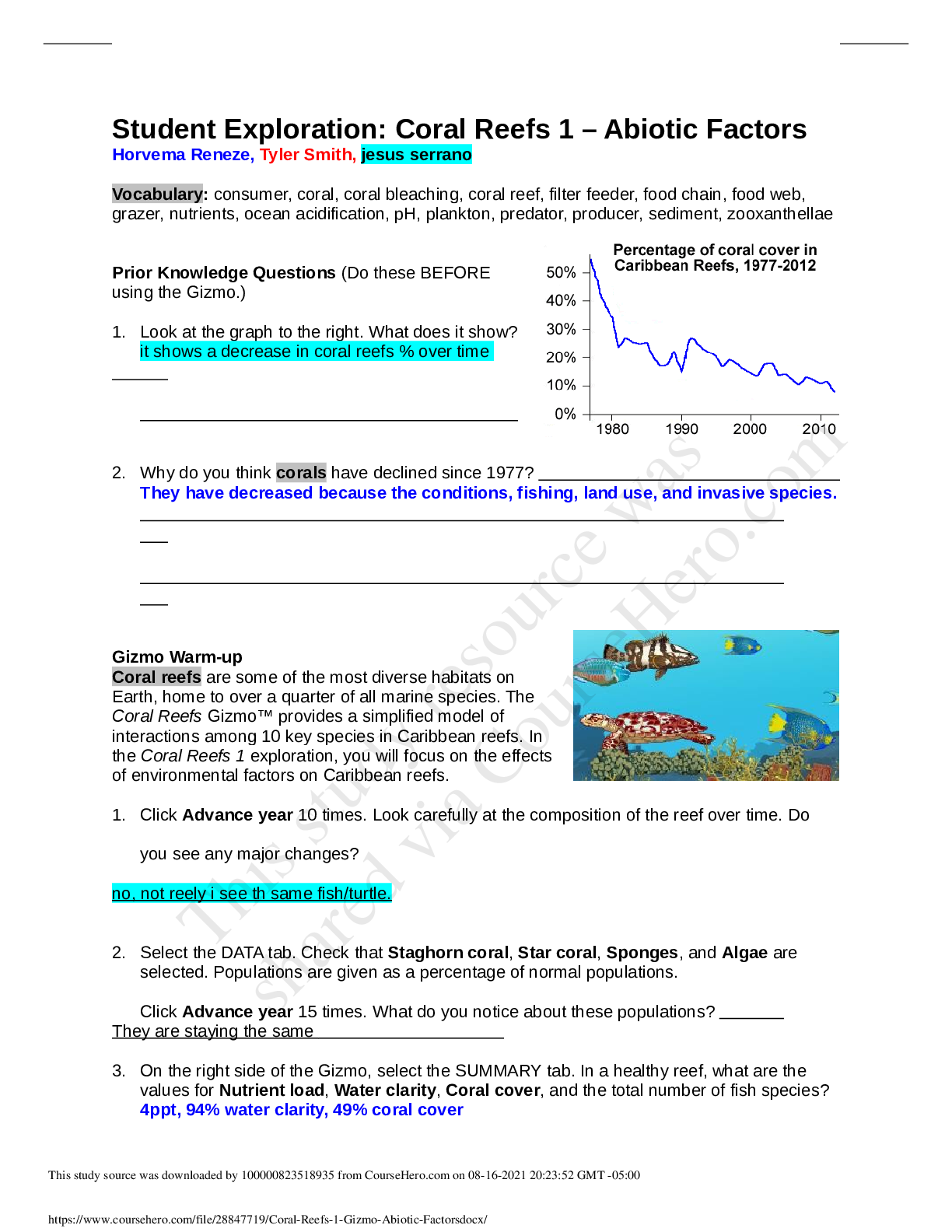
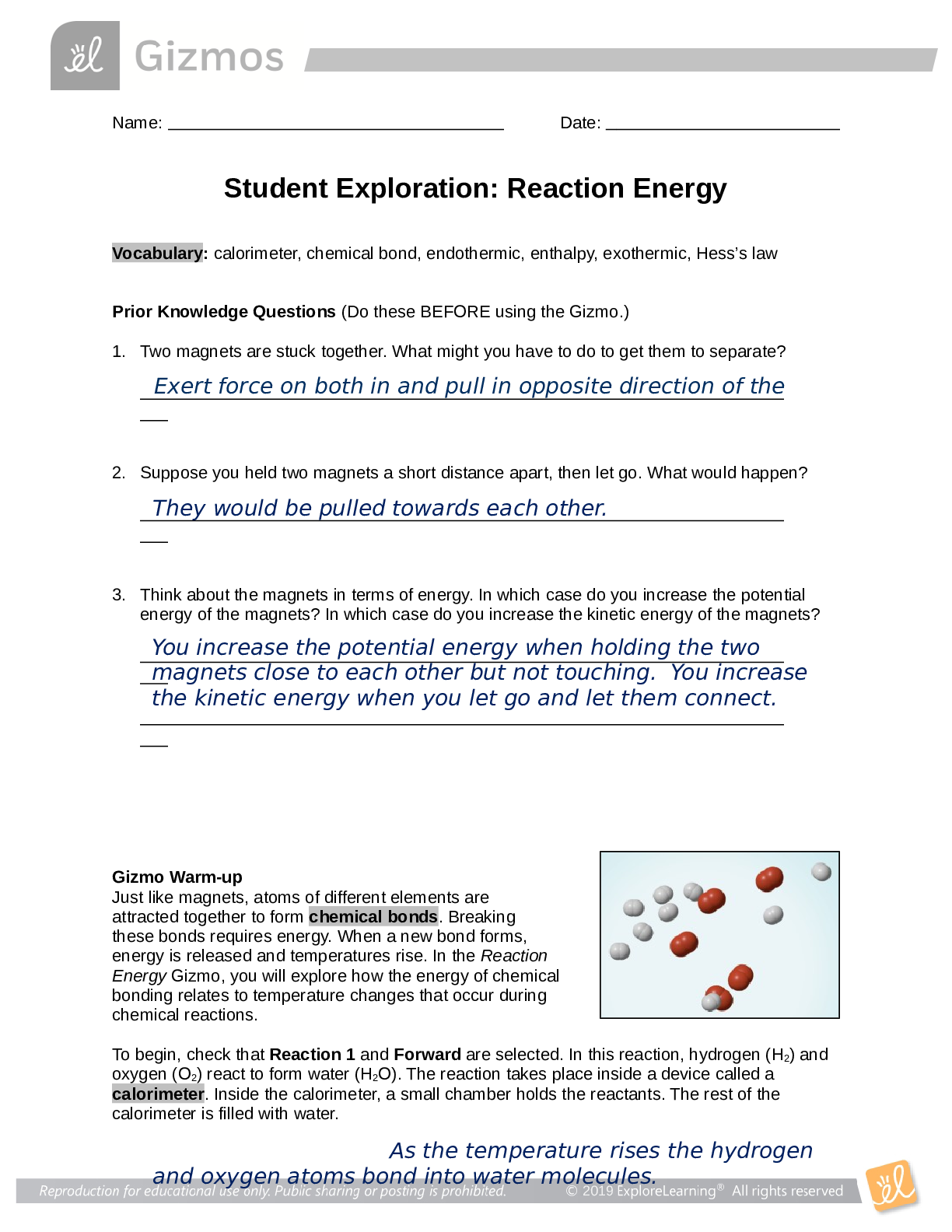

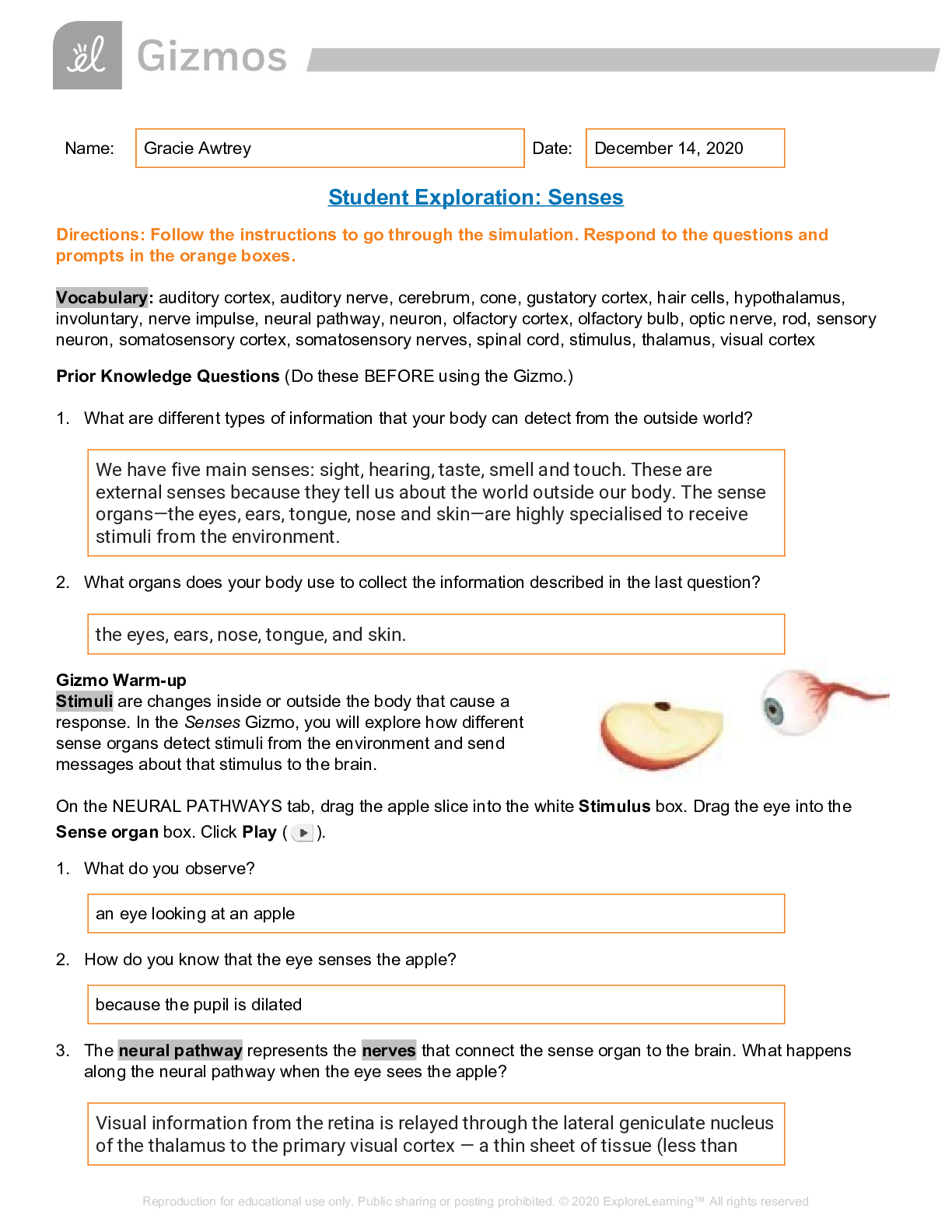

.png)
